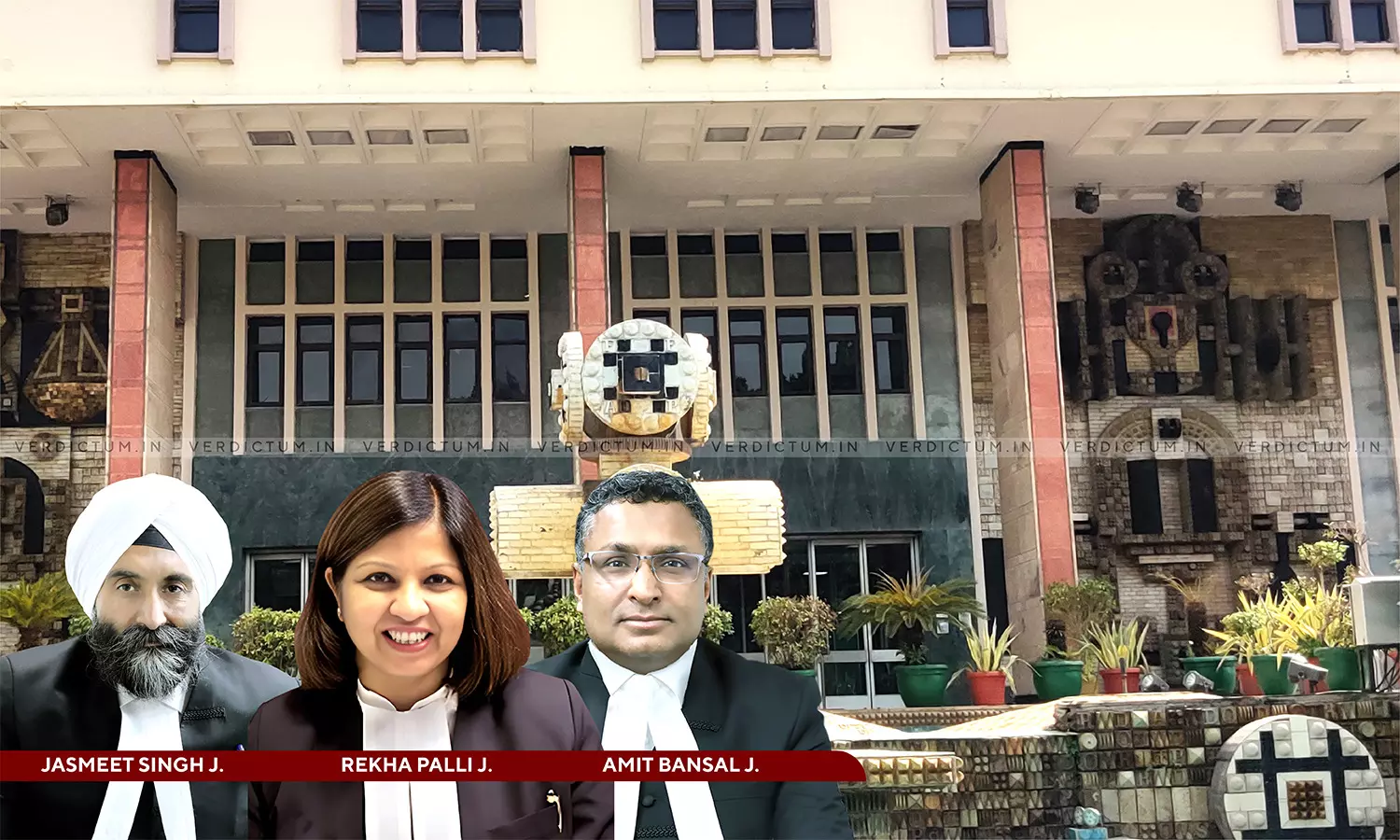
Orders Passed U/S 12 Of Guardians And Wards Act Would Be Appealable U/S 19 Of Family Courts Act: Delhi HC
 |
|The Delhi High Court held that the orders passed under Section 12 of the Guardians and Wards Act, 1890 (GW Act) would be appealable under Section 19 of the Family Courts Act, 1984 (FC Act).
A Full Bench was constituted on the orders of the Chief Justice pursuant to a reference order passed by the Division Bench in a matrimonial application.
The Bench comprising Justice Rekha Palli, Justice Jasmeet Singh, and Justice Amit Bansal observed, “… we have no hesitation in agreeing with the appellant and the learned Amicus Curiae that the decision in Col Ramesh Pal (supra), wherein it was held that an order passed under Section 12 of the GW Act would not be appealable under Section 19 of the FC Act does not lay down correct law. We, consequently, answer this reference by holding that orders passed under Section 12 of the GW Act would be appealable under Section 19 of the FC Act.”
Advocate Sumante De appeared for the appellant while Amicus Curiae Prosenjeet Banerjee appeared for the respondent.
In this case, the Division Bench while dealing with the appeal preferred by the mother of the minor child, recorded its reluctance in accepting the view expressed in Colonel Ramesh Pal Singh v. Sugandhi Aggarwal, MAT.APP.(F.C.) 211/2019, wherein it was held that an order under Section 12 of the GW Act passed during the pendency of proceedings before the Family Court would be an interlocutory order and would consequently, not be appealable under Section 19(1) of the FC Act. The Court noticed that a contrary decision regarding the scope of appeal under Section 19(1) of the FC Act was taken by another Division Bench in Manish Aggarwal v. Seema Aggarwal, (2012) 192 DLT 714 (DB) and, therefore, opined that the decision in Col Ramesh Pal was required to be reconsidered by a Larger Bench.
It is, in these circumstances, that the Full Bench was constituted to consider the correctness of the decision in Col Ramesh Pal. The impugned order was passed on an application of the minor child’s father with a prayer that the child be admitted in one of the three schools near his place so that instead of being sent to a creche after school hours, the child could be placed in his temporary custody every day during the period when the mother was busy in office.
The High Court after hearing the contentions of the counsel, noted, “… the FC Act still does not define as to what would be an interlocutory order. In these circumstances, there is no reason why the provisions of Section 19 of the FC Act must not be purposively interpreted to include within its ambit all those orders which touch upon matters of moment and have trappings of finality. An order under Section 12 of the GW Act which entitles the Court to grant temporary custody of the child to one of the parents would definitely be an order passed after evaluating the respective contentions of the parties and would necessarily affect not only their rights but also those of the minor child.”
The Court added that, to hold that such an order would not fall within the ambit of Section 19 (1) of the FC Act would not only amount to unduly restricting the scope of this appellate provision but would also curtail the exercise of the parens patriae jurisdiction which the Court exercises in the welfare of the minor child.
“As we have already held hereinabove that the powers exercisable under the FC Act, could not be controlled by the provisions of other statutes, we are of the view that the criteria prescribed under the GW Act, could not be applied to test whether an order should be treated as an interlocutory order for the purposes of the FC Act”, it said.
The Court further emphasised that the mere fact that an order under Section 12 of the GW Act has been labelled as an interlocutory order under the said Act, it cannot be a ground to hold the same as an interlocutory order under the FC Act, which Act was enacted 94 years later and was intended to provide a much wider window for appeal.
“In our view, in every case, when an order passed by the Family Court, is taken in appeal before the High Court, it would be incumbent upon the Court to examine the nature of the impugned order in its entirety to determine whether the same is in the nature of an adjudicatory order which decides valuable rights of the parties. Whenever the Court finds that an order touches upon the vital rights of the parties in contradistinction to an order which is merely a procedural order, an appeal ought to be entertained, irrespective of the fact that the order was passed during the pendency of the proceedings before the learned Family Court”, it also observed.
Accordingly, the High Court answered the reference.
Cause Title- ABC v. XYZ (Neutral Citation: 2024:DHC:7994-FB)
Appearance:
Appellant: Advocates Sumante De, Rohit Khurana, Preeti Nair, Akshita Raina, and Kumar Harsh.
Respondent: Advocate Siddharth Handa, and Amicus Curiae Prosenjeet Banerjee.